If January was meant for reflection and planning, then I’m running on a slightly delayed schedule.
I’m still wading through a MIRO board full of bright, shiny ideas—all things I’m interested in pursuing this year—but decision-making? That might take another month. And that’s fine. I like the idea of transitions unfolding alongside the bloom of spring daffodils rather than being crammed into the first weeks of the year.
That said, I have managed to dig into some client statistics from last year, and I thought you might find them interesting!
Exploring My 2024 Client Trends – Who, What, and Why?
Looking back at my client breakdown from 2024, a few clear patterns emerged. It’s always fascinating to see how these trends evolve—and, given my niche focus, how they reflect what’s happening in the wider architectural profession.
Why Do Clients Seek Coaching?
The reasons for coaching are rarely straightforward. Goals shift, overlap, and evolve as we work together. But to keep things simple, I’ve broadly grouped 'why architects come to coaching with me’ into three main categories.
Career Next Steps (51%)
Many architects come to coaching looking for clarity on their next move. The big questions? Can I grow where I am? Should I move? Or is it time to pivot? Together, we map out all options, weigh up potential outcomes, and eliminate any lingering doubts so they can move forward with confidence.
Leadership Capabilities (33%)
This group is typically made up of team or project leaders—some newly promoted, others looking to become more time-efficient. The shift from “doing” to “overseeing” brings new challenges: delegation, feedback, team culture, strategy, and business development. Coaching helps them refine these skills and adjust to their evolving role.
Management/Strategy (15%)
For senior leaders, directors and small practice owners, coaching is often about long-term vision—where they want their department or practice to be in 1–5+ years. My role here? To be a trusted sounding board, giving them space to think at a higher level, challenge assumptions, and bring clarity to their strategic direction.
Gender Insights: Reasons for Coaching
One statistic I find particularly interesting is how coaching goals break down by gender. While both men and women come to coaching for similar reasons, the emphasis often shifts depending on their career stage and the challenges they face.
Career Next Steps is the most common reason for both men and women, but women prioritise it more (54.8%).
Why is that? A few possible reasons come to mind:
Women often plan their careers alongside life changes like maternity leave or caregiving responsibilities.
There's a stronger emphasis on finding fulfilling work—"If most of my salary is going to childcare, I want a job I actually enjoy!"
There’s greater awareness of career stagnation, whether due to bias, lack of visibility, or fewer leadership opportunities.
Support networks like WIA are actively discussing barriers and showcasing role-models, making career transitions feel more achievable.
From my work with the WIA Mentoring Programme, I’ve also seen a growing number of women exploring non-traditional career paths, looking beyond the linear “promotion” track to find roles that align with their values and ambitions.
That said, is it possible that men are missing an opportunity here? If women are actively reflecting on their career paths and making intentional choices, does an assumption still exist that men’s career progression is a given? Could a sense of entitlement, bias, or expectation mean that men don’t feel the need to work as hard at defining their own paths? It’s an interesting thought.
Leadership Capabilities: A More Even Split
The numbers for Leadership Capabilities are fairly balanced across genders (men 35.7%, women 32.3%). This is largely due to my corporate coaching engagements, where leadership development is often offered across a level as a whole, leading to more men taking up coaching than might have otherwise sought it out.
Management & Strategy: A Male Lean
Last year, I saw higher engagement from men in Management & Strategy coaching. However, this tends to fluctuate year to year, so I wouldn’t call it a long-term trend just yet. One I will keep an eye on.
Career Level vs Coaching Goals
The coaching trends by career level align closely with what I’ve observed over the years.
Architect, Senior Architect & Associate Levels – Career Next Steps is the top priority at these stages, as architects work to gain stability, explore opportunities, and position themselves for growth. This gradually declines as individuals rise and settle into their careers and establish their paths.
Director Level – Interestingly, the numbers rise again at the Director level. Many leaders who have spent years at the same firm start to reassess their direction, whether that means relocating, shifting to a more specialist role, or exploring new leadership opportunities.
As architects rise in position, the focus of coaching shifts.
Associate Directors & Directors – There’s a clear move toward Leadership Capabilities and Management/Strategy, reflecting the increasing responsibility that comes with senior roles. The emphasis is no longer just on personal career progression but on leading teams, shaping culture, and making strategic decisions.
Senior-Level Architects & Directors – At this stage, coaching increasingly focuses on strategic thinking and business development. Many architects at this level have already led teams for years and are now turning their attention to innovation, expansion, and long-term visioning—whether for their firm, a specific sector, or their own practice.
These insights underscore just how personal and dynamic coaching journeys can be. No matter your level, it’s never too early—or too late—to have a meaningful career conversation. Whether you’re figuring out your next step, refining your leadership skills, or looking to expand your impact, coaching is about tailoring the approach to align with where you are now—and where you want to go.
Would love to hear—what career challenges or transitions are on your mind this year?






